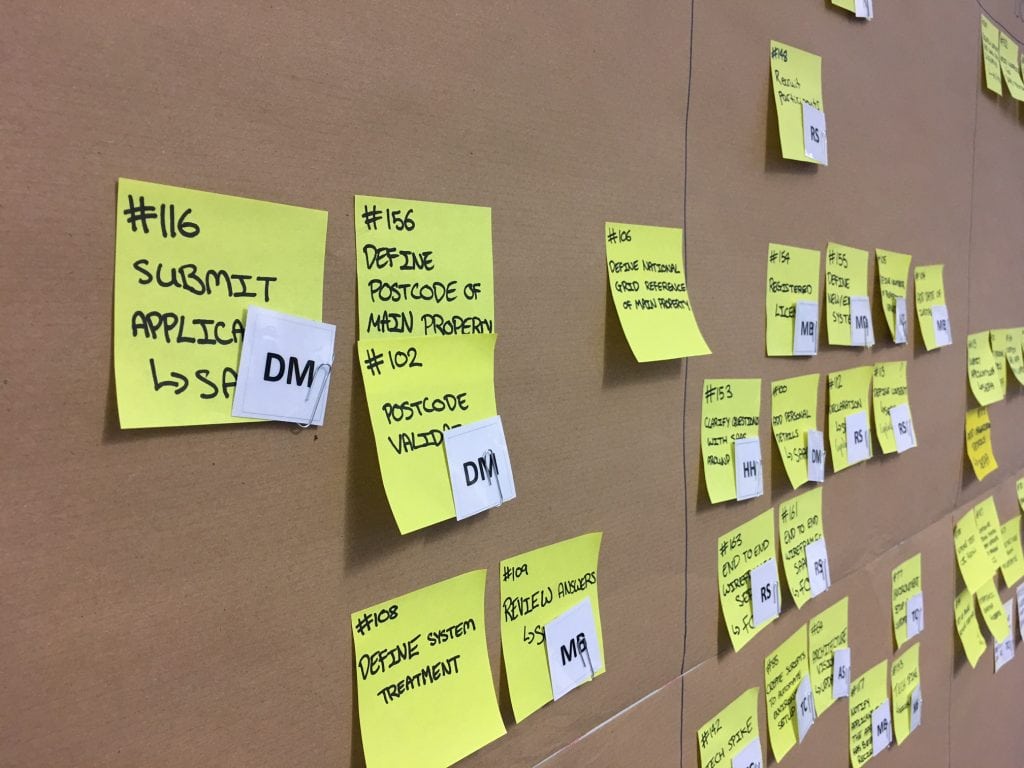Digital
Re-use it, don’t lose it
March 7, 2017 by Hugh Wallace No Comments | Category Digital First, Digital Public Services, mygov.scot
One of the underlying principles of how we work in the Digital Directorate is the concept of re-use before buy before build.
Even if understanding user needs is firmly embedded into an overall approach, when it comes to technology, projects often focus on what they can ‘buy’ or ‘build’.
Instead, we’ve been casting our net wider to see what we can re-use or re-purpose – potentially saving time, money and effort.
Discovery – finding out about users and services
Our current project is centered on how people and businesses apply for grant funding and licences across the Scottish public sector.
At the end of 2016 we undertook an extensive Discovery project where we talked to a wide range of people involved in the application for, and administration of, grants and licences. This helped develop our understanding of their user needs, current technology practice, and what improved services might look like.
The results highlighted that despite having different end points (one is about getting funds, the other is about gaining permission to do something), the application process for both grants and licences is very similar.
Knowing this, we created a ‘common service pattern’ – which shows the 10 stages we identified in an application journey: from a person ‘knowing’ they need to apply through to the ability to ‘review’ the delivery of successful applications to ensure they are providing the promised benefits.
Alpha – testing out our ideas
We’ve recently moved into an Alpha phase – this means we’re starting to prototype and test specific parts of our service pattern and work out what’s technically possible. We’re running this as a 6-week process, so it’s a fairly intensive burst of activity where we make decisions and demonstrate progress continually.
This will involve asking users to complete a version of the online application process where they input key information and submit their details.
These details will then get passed through to a Customer Relationship Management (CRM) system – for the purposes of our prototype we’re using Microsoft Dynamics.
Along the way we’re looking to:
- check each person is able to get a grant or licence
- check each person’s evidence is valid
- email and text applicants to say when an application has been received
All of this involves various degrees of integration with third-party systems and services, as well as usability testing to ensure what we’re designing works for users.
Re-use of knowledge
From my perspective, what’s been really enlightening about the process is how much we’re making use of existing knowledge – reading blog posts, dipping in and out of Slack channels, or just picking up the phone – as much as code and data.
We tend to think of re-use as something that’s generally applicable to technical things (eg repositories on GitHub, plugging in to existing APIs, code libraries). But the softer side has been critical in helping explore options and consider possibilities.
Building in time to do this has been an important part of our process. As has holding daily stand-up meetings where the team get together to share progress and ideas and quickly decide whether they are worth pursuing or not.
For instance, when we’ve been considering whether to include a document upload feature within our build, being able to assess how others have implemented similar features (see link below) alongside our own knowledge has proved invaluable. Short, time-bound sessions have helped us make quick, informed decisions.
Iteration isn’t just about your approach to building a service, it’s about how you evolve your thinking as well.
Sharing our findings
Of course, in order to make sure others can also benefit from the knowledge we’re gaining, it’s also worth putting the effort into documenting the process as we go – hence this blog post, and others we’re currently planning.
Here are a few of the things on our reading list that we’ve benefitted from so far:
- Eligibility checking using the principles of Check before you start developed by the Government Digital Service (GDS)
- GDS’s design notes on uploading things
- GOV.UK’s well-documented Notify and Registers beta services, both of which we’re planning to trial
- mygov.scot’s evolving style guides and patterns, including some up-to-the-minute principles for designing and building forms (guidance to be published shortly)
- The new assessment resources for the Digital First Service Standard. As all of our services need to be assessed, referencing these guidelines as we go has been invaluable to keep us on track
Follow our progress
You can follow the progress of our project on Twitter using #alphagal
Tags: digital, Digital Ecosystem



Leave a comment